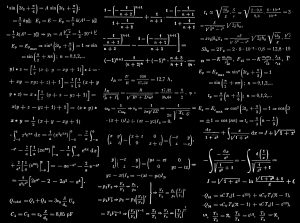Learning Beyond the Classroom: Holistic Education

Are you a parent who want to provide your children with a well-rounded education that goes beyond traditional classroom learning? Look no further! In this article, we will explore the concept of holistic education and the role abacus classes play in enhancing mathematical skills. By embracing abacus learning, you can empower your child to excel in math and foster their overall cognitive development. So, let’s dive in and discover the world of learning beyond the classroom!
Holistic Education: Nurturing the Whole Child
Holistic education is an integrated approach that focuses on nurturing all aspects of a child’s development. It goes beyond traditional classroom boundaries and emphasizes the intellectual, emotional, social, and physical growth of students. By engaging in meaningful experiences that connect various disciplines and reflect their interests and needs, students develop critical thinking, creativity, and a deeper understanding of themselves and the world around them.
The key principles of holistic education align perfectly with parents’ aspirations for their children. Let’s take a closer look at these principles:
-
Whole-Child Development: Holistic education aims to nurture all aspects of a child’s development, including emotional, social, physical, and spiritual growth. By exploring their unique strengths and weaknesses, children develop a sense of identity and purpose.
-
Interdisciplinary Learning: This approach integrates various subjects to promote a comprehensive understanding of complex concepts. For example, a project on climate change might combine science, mathematics, and language arts, allowing students to see the interconnectedness of knowledge and apply it in real-world contexts.
-
Experiential Learning: Hands-on experiences are central to holistic education. Students engage in activities that require critical thinking and problem-solving, enabling them to connect academic learning to real-life situations. Projects like community initiatives or collaborative research foster a deeper understanding of concepts.
-
Emphasis on Relationships: Building healthy relationships within the classroom and the broader community is crucial in holistic education. Collaboration among students, teachers, and community members creates a supportive learning environment that values diverse perspectives.
-
Personalized Learning: Recognizing that each child has unique learning styles and needs, holistic education encourages personalized lesson plans. This adaptability enhances student engagement and motivation, making learning more relevant and impactful.
Abacus Learning: A Powerful Tool for Cognitive Development
Now that we understand the principles of holistic education, let’s explore the role of abacus learning in promoting cognitive development. Abacus training provides a unique method for developing essential skills in children, especially in mathematics. Here’s how abacus learning aligns with the goals of holistic education:
-
Cognitive Development: Abacus training enhances mental arithmetic skills, leading to the development of a “mental abacus.” This cognitive tool allows students to perform complex calculations mentally, fostering confidence and improving overall academic performance. The process of manipulating beads helps internalize mathematical concepts, making them more intuitive.
-
Engagement of Both Brain Hemispheres: Abacus learning activates both the left and right hemispheres of the brain. The left hemisphere focuses on logical reasoning and computation, while the right hemisphere nurtures creativity and visualization. This balanced approach enhances critical thinking and problem-solving skills, which are essential components of holistic education.
-
Improved Memory and Concentration: The repetitive nature of abacus exercises strengthens both short-term and long-term memory. As students practice, they develop better retention strategies that can be applied across various subjects, contributing to a well-rounded educational experience.
-
Spatial Reasoning and Visualization: Using the abacus helps students visualize mathematical operations, enhancing their spatial reasoning abilities. This skill is crucial not only in mathematics but also in fields such as science and engineering, aligning with the interdisciplinary focus of holistic education.
Fostering Independence and Confidence: As students gain proficiency in abacus skills, they become more independent learners. This newfound confidence extends beyond mathematics, encouraging students to tackle challenges in other areas of their education and personal lives.
The Benefits of Abacus Classes for Math Learning
Abacus classes offer numerous benefits for children struggling with mathematics. Let’s explore some of the advantages of enrolling your child in abacus classes:
-
Strong Mental Math Abilities: Abacus training develops strong mental math skills, allowing children to perform complex calculations quickly in their heads. This ability gives them a competitive edge over their peers, not only in exams but also in future competitive tests.
-
Improved Focus and Concentration: The structured nature of abacus training improves children’s focus, concentration, and attention span. These skills have a positive impact on their overall academic performance.
-
Enhanced Overall Intelligence: Abacus learning enhances overall intelligence by stimulating both sides of the brain. It promotes critical thinking, logical reasoning, and problem-solving abilities that extend beyond mathematics.
-
Boosted Confidence and Self-esteem: As children master abacus skills, they gain confidence in their abilities. This confidence extends to other aspects of their education and personal lives, fostering positive self-esteem.
-
Personality Development: Abacus classes not only improve mathematical skills but also contribute to a child’s overall personality development. They learn patience, perseverance, and determination through consistent practice and problem-solving.
-
Development of Essential Skills: Abacus learning helps children develop skills like visual memory, retention, speed writing, and numerical ability. These skills are transferable and beneficial across various subjects.
Holistic education, in conjunction with abacus learning, provides a comprehensive approach to developing children’s cognitive skills. By fostering critical thinking, creativity, and mathematical abilities, this integrated method prepares students for the complexities of modern life. Abacus classes not only enhance mathematical skills but also contribute to whole-child development. The benefits extend beyond the classroom, equipping children with lifelong skills that empower them to contribute positively to their communities and the world at large.
In conclusion, abacus classes are a valuable tool for enhancing mathematical skills within the framework of holistic education. SIP Abacus India offers world-class skill development programs that harness the power of abacus learning. Their courses focus on developing mental math abilities in children aged 6-12 through fun, engaging methodologies. With a proven track record and a comprehensive curriculum divided into structured levels, SIP Abacus ensures that children develop strong mathematical skills while experiencing the benefits of holistic education.
Don’t wait any longer to unlock your child’s potential! Explore the world of abacus learning and embrace holistic education to provide your child with a well-rounded educational journey beyond the classroom.



